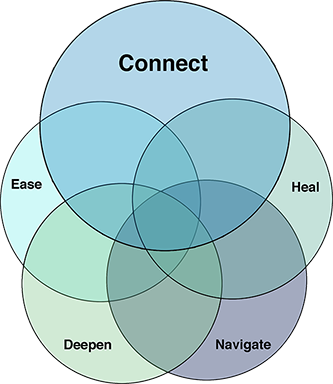Nicole Sucre, PsyD
9457 S University Blvd #149 Highlands Ranch, CO 80126
(720) 715-9727
© Nicole Sucre | Website by Goodman Creatives | Privacy Policy
However, illness is often a time people feel quite alone. This can be the result of isolation imposed by the demands of a disease and its treatments, a sense of being treated differently by others, painful disruptions in close relationships, or even wanting to shield the people you care about from the full truth of what you are thinking and feeling.
Connection and support in our relationships are not always easy, even in the best of circumstances. Just as our relationships are deep sources of comfort, joy and meaning in life, they are also very often sources of great pain and difficulty.
The disruptions and complicated emotions of a serious or life limiting illness can be particularly difficult to navigate in relationships.
Therapy can help you to recognize, understand, and work with the complicated emotions of an illness skillfully both within yourself and in your relationships.
 © Nicole Sucre, PsyD
© Nicole Sucre, PsyD
The relationship we create together in therapy is both a source of support and connection, and a resource to help you create, restore, maintain, and grow important connections through the changes and challenges of an illness.
![]()
Whether you are a patient or a loved one, one of the biggest disruptions of an illness is often the change it brings to the ways we give and receive care. This is true on emotional, physical, and practical levels.
Receiving and giving care are part of what we do when we love people. This can feel vital, authentic, and immensely nourishing. However, these processes are not simple, and they are not always positive. They also often involve complicated and difficult emotions.
Needing others is one of our most vulnerable experiences.
This is especially true when an illness changes our abilities and limits our experience of independence. Giving care in new ways is complicated as well. It can be challenging when people we love depend on us in new ways as we contend with our own needs, fears, and losses.
The complexities we experience in giving and receiving can be even more daunting when there are major losses or traumas. These losses and traumas can be present in the current circumstances of an illness, and they can also be a resurfacing of old wounds. For many people, they are both.
Therapy can help you find your way with the complex emotions involved in the changes you experience in giving and receiving care. Together we can support you to explore, balance, expand, and choose how you seek, receive, and give support in the ways that are right for you.
Your well being includes a greater web of relationship that includes not just you, but your loved ones and health care team.
If appropriate and desired, in some situations joint sessions can be an important adjunct to individual therapy.
Joint sessions with a partner or family member help each of you to recognize and increase the strengths in your relationship. They can support you to explore new ways to give and receive care, facilitate communication, and help to repair disruptions created by the illness.
Joint sessions are helpful when both people are open and interested in communicating with one another about areas of difficulty in living with an illness. In some situations, a referral to a couples or family therapist will likely be more helpful, either instead of or in addition to joint sessions.
The relationships you have with your medical team are profoundly important. They are crucial sources of information, guidance, and support.
Therapy with a health psychologist is a specialized resource to help you explore your needs, communicate effectively, and maintain collaborative relationships with your medical clinicians through an illness.